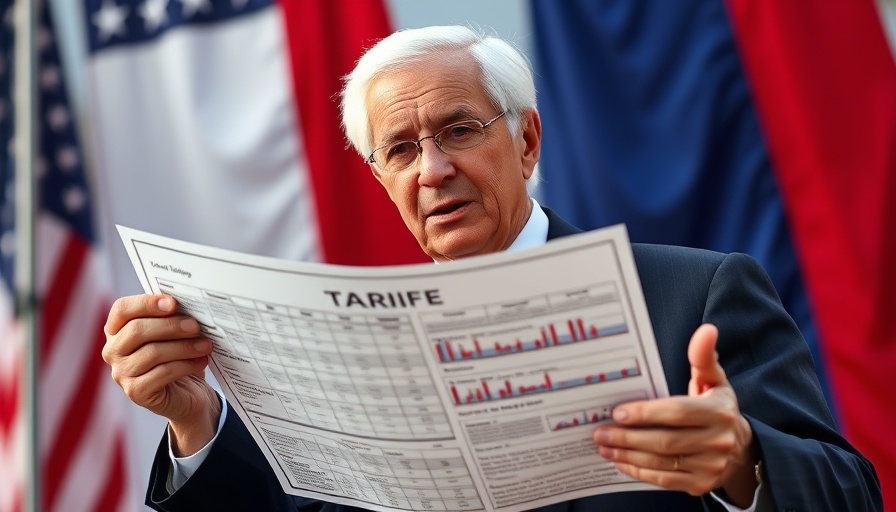
Understanding "Liberation Day": A Turning Point in American Trade Policy
In a striking announcement, April 2, 2025, has been dubbed "Liberation Day"—a pivotal moment heralded by the United States' administration as the dawn of a renewed economic independence for America. Former President Donald Trump has vowed to implement reciprocal tariffs aimed at restoring American manufacturing and protecting domestic industries from foreign competition. This bold move comes in response to decades of trade imbalances, which have seen American workers endure unprecedented job losses while foreign nations benefited from favorable tariff regimes.
In "Trump tariffs: ‘Liberation Day’ plan puts markets on high alert," the discussion explores monumental changes in trade policy, prompting us to analyze its broader consequences.
The Significance of Tariffs
Trump referred to the impending tariff adjustments as "one of the most important days in American history." With a proposed 25% tariff on all foreign-made automobiles and a similar levy on other imports, this policy aims to reinvigorate American production. Industries such as steel, automotive, and agriculture could see increased investments, potentially leading to thousands of new jobs as companies are incentivized to establish manufacturing facilities in the U.S. The intention is clear: by charging foreign countries a price for accessing the American market, the U.S. seeks to reclaim its economic prosperity.
The Challenges Ahead
While this policy is undoubtedly ambitious, implementing such tariffs could invite backlash from international trade partners, potentially igniting trade wars that may damage global supply chains and raise costs for consumers. Furthermore, the practical execution of these tariffs raises questions about compliance and enforcement, as past experiences showcase the complexities involved in international trade regulations.
A Call for African Perspectives
For African nations, Trump's collective tariffs could redefine trade relations. Africa's role as a burgeoning source of raw materials and a developing market could become increasingly significant, dependent on how U.S. policies shift foreign trade dynamics. African leaders should approach this potential economic shift with caution and strategize on how best to engage with a re-emerging America that may prioritize protectionism over globalization.
Conclusion: A New Era?
As the world watches America's economic evolution, it's imperative for global citizens, particularly those in Africa, to advocate for equitable trade practices that promote mutual growth rather than isolationism. Only time will tell if "Liberation Day" will indeed mark a new dawn for American industry and global trade dynamics.
 Add Row
Add Row  Add
Add 




Write A Comment